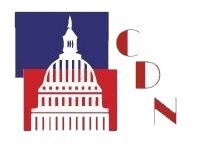Kevin Roberts, Daniel Erspamer, and Randy Hicks, on May 26, 2021, wrote an excellent article about FDR, the ‘forgotten man,’ and similarities to today’s economic situation.
Ever hear of William Graham Sumner? Me neither until I read Amity Shlaes’ book The Forgotten Man: A New History of the Great Depression. I hear the groans now: “Another history lesson.” Yes, but this is pertinent to what’s currently happening. So bear with me.
Sumner (1840-1910) was a Yale sociology professor, a (what we today refer to as) conservative, a classical liberal, social scientist, and Episcopal minister. He was a champion of laissez-faire economics (he defined it as ‘mind your own business’). Many of his articles emphasized the validity and ultimate reality of economics over politics, the stupidity of attempting to achieve progress through governmental policy. He coined the phrase ‘the forgotten man,’ the middle-class citizen taxed against his will for government programs designed to buy votes for politicians in power. Perhaps his most famous saying is:
“As soon as A observes something which seems to him to be wrong, from which X is suffering, A talks it over with B, and A and B then propose to get a law passed to remedy the evil and help X. Their law always proposes to determine what C shall do for X, or in the better case, what A, B, and C shall do for X. . . .
What I want to do is to look up C. I want to show you what manner of man he is. I call him the Forgotten Man. Perhaps the appellation is not strictly correct. He is the man who never is thought of. . . .
He works, he votes, generally he prays – but he always pays. . . .”
Amazing! He wrote in 1883 what is true and happening today.
Ray Moley, an FDR ‘brain trust’ member, in 1932, inserted the reference into an FDR speech: If elected, FDR promised, he would act in the name of ‘the forgotten man at the bottom of the economic pyramid.’
So let’s focus upon ‘the forgotten man.’
To do so we must first consider Public Choice economics, whose theories tells us much about what Biden is doing today. It employs the theories of economics to the explain political behavior, has revolutionized the study of the political decision-making process.
Economist James Buchanan (1919-2013) defined public choice as ‘politics without romance.’ It assumes politicians seek to promote the common good for all people. In the name of ‘public interest,’ politicians are portrayed as ‘public servants’ who always listen to and carry out the ‘will of the people.’ Politicians and policymakers (voters too) are supposed to rise above their own concerns when conducting public business.
The economic concept of utility maximization is applied first to voters. The economic concept of rational behavior (on which Public Choice rests) assumes most voters are guided by their own self-interests, therefore their motivations are no different from those of people in any economic market. They support politicians they think will make them personally better off. Public choice then transfers the rational behavior of economic theory to politics. Politicians know this (but probably not its name or formal theory) so they do whatever they consider necessary to garner the most votes.
[If there ever was an argument to impose term-limits on members of Congress, this is it!]
We next examine Keynesian economics, of which Joe Biden is a disciple. Dan Mitchell wrote about how Keynesian economics has always been incorrect. And about how, “… we’re now going to have another real-world test case thanks to President Biden’s so-called American Rescue Plan.”
Mitchell further wrote, “Mr. Biden is bringing a new twist to the [spending] profligacy. Instead of trying to justify the new spending by saying it is needed to compensate households and businesses for government-mandated lockdowns [that wrecked the US economy through a completely unnecessary and wildly inconsistent power grab], he is making the Keynesian argument that the new spending is a way of stimulating the economy. The same approach was used when he [Biden] was Vice President, of course, but did not yield positive results. …Mr. Biden and his team apparently think the anemic results were a consequence of not spending enough money. Hence, the huge $1.9 trillion price tag for his plan.”
Who is today’s forgotten man? He is “… is a saver, perhaps first among his socially responsible virtues. It is not the amount he saves, which is often not much, but rather that it is in his character to save. In economic terms, he has learned self-discipline, to defer gratification in the present with the expectation that (1) he will have more to consume in the future if he wishes, and (2) he will have a cushion if a distant tomorrow falls short of what he had expected. … Self-reliance, industriousness, and personal accountability are among other characteristics attributable to the Forgotten Man. He (or she) shows up for work every day and rarely utters a complaint. Unwavering fiscal conservatism means that he will never have all he desires, which is one of the sacrifices he must make for never having to worry about losing his home to foreclosure. We all know many forgotten men. They are, in short … us. Or at least what each one of us might aspire to be.”
Americans are forgotten again today in Biden’s effort to ‘build back better.’ To paraphrase Roberts, Erspamer, and Hicks, Biden is counting upon economic magic, expecting a huge government expenditure will solve the current economic problem.

